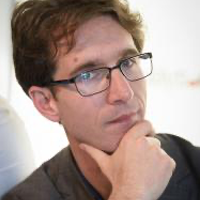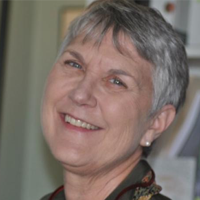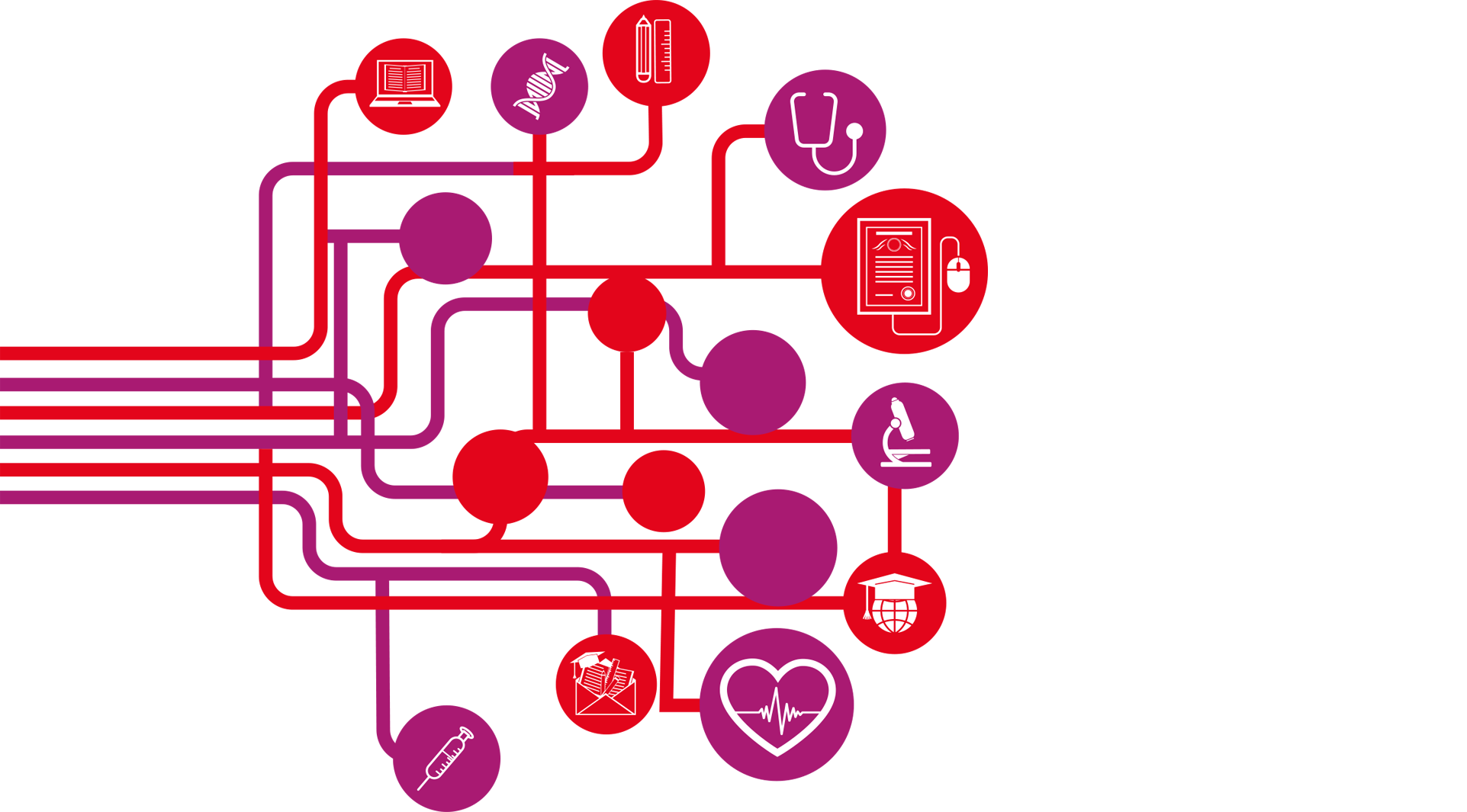Event Highlights: The Future of Equity Policy in Education and Health: Will Intersectoral Action be the Solution?
On 2 November 2021, NORRAG and the Global Health Centre (GHC) at the Graduate Institute, Geneva hosted a webinar on “The Future of Equity Policy in Education and Health: Will Intersectoral Action be the Solution?” In this webinar, experts in education and health discussed the opportunities and challenges to intersectoral research, practice and policy in both fields.
Watch the video in French
Moira V. Faul, NORRAG Executive Director and Tammam Aloudat, Managing Director of the Global Health Centre, opened the event. Faul began with a presentation of NORRAG’s 2021-25 Strategy and NORRAG’s output, the latest example being its recently launched NORRAG Special Issue (NSI) 06 States of Emergency: Education in the Time of COVID-19.
Tammam Aloudat pointed out that COVID-19 has notably revealed the gaps in achieving equity and the importance of intersectoriality in tackling this particular urgent challenge.
Paul Cairney, Professor of Politics and Public Policy in the division of History, Heritage, and Politics at the University of Stirling, UK, grounded his presentation on a recent article, The future of education equity policy in a COVID-19 world: a qualitative systematic review of lessons from education policymaking.
Discussants, Dr Colette Chabbott, an education expert, and Dr Remco van de Pas, a public health doctor and global health researcher, built on the introduction. Dr Chabbott emphasized how contemporary crises such as climate change make intersectorality urgent. Moreover, she highlighted some persistent needs for structural change to education to address the contemporary needs of learners. Next, Dr van de Pas echoed Dr Chabbott’s call for structural changes, giving the example of the need to provide decent jobs to build and sustain a responsive and competent health workforce.
During the ensuing lively round-table discussion, participants addressed questions concerning what each sector can learn from the other.
Speakers
 Paul Cairney, Professor of Politics and Public Policy, Division of History, Heritage, and Politics, University of Stirling, UK will present his article co-authored with Sean Kippin: The future of education equity policy in a COVID-19 world: a qualitative systematic review of lessons from education policymaking. It is one of several planned reviews for the IMAJINE project tackling territorial inequalities and promoting spatial justice. See also the first review on health equity by Cairney, St Denny, and Mitchell The future of public health policymaking after COVID-19: a qualitative systematic review of lessons from Health in All Policies.
Paul Cairney, Professor of Politics and Public Policy, Division of History, Heritage, and Politics, University of Stirling, UK will present his article co-authored with Sean Kippin: The future of education equity policy in a COVID-19 world: a qualitative systematic review of lessons from education policymaking. It is one of several planned reviews for the IMAJINE project tackling territorial inequalities and promoting spatial justice. See also the first review on health equity by Cairney, St Denny, and Mitchell The future of public health policymaking after COVID-19: a qualitative systematic review of lessons from Health in All Policies.
 Dr. Remco van de Pas is a public health doctor and a global health researcher. He is senior research fellow and lecturer in global health policy at the Institute of Tropical Medicine, Antwerp. His teaching and research focus on global health governance, its political-economy and foreign policy with a special attention on health workforce development and migration, health system strengthening, social protection and health financing, global health security, globalization and its impact on health equity. Remco van de Pas is a visiting research fellow at Maastricht University and Clingendael, Netherlands Institute of International Relations. He is vice-president of the Medicus Mundi International Network – Health for all, editorial board member of the academic journal Globalization and Health and a member of the Political Determinants of Health Research Collective. Remco worked as health policy adviser for Wemos, a public health foundation advocating for social justice and health equity and as medical coordinator for the NGO Médecins du Monde, of which the largest part in West-Papua, Indonesia. He practiced medicine in mental health services for refugees and migrants in Rotterdam.
Dr. Remco van de Pas is a public health doctor and a global health researcher. He is senior research fellow and lecturer in global health policy at the Institute of Tropical Medicine, Antwerp. His teaching and research focus on global health governance, its political-economy and foreign policy with a special attention on health workforce development and migration, health system strengthening, social protection and health financing, global health security, globalization and its impact on health equity. Remco van de Pas is a visiting research fellow at Maastricht University and Clingendael, Netherlands Institute of International Relations. He is vice-president of the Medicus Mundi International Network – Health for all, editorial board member of the academic journal Globalization and Health and a member of the Political Determinants of Health Research Collective. Remco worked as health policy adviser for Wemos, a public health foundation advocating for social justice and health equity and as medical coordinator for the NGO Médecins du Monde, of which the largest part in West-Papua, Indonesia. He practiced medicine in mental health services for refugees and migrants in Rotterdam.
 Colette Chabbott, PhD, (Stanford 1995) spent more than 30 years as a program officer and consultant to international development agencies and a researcher and academic, most recently at George Washington University. Her academic work explores the rise of international development as an organizational field that uses Western science to generate and promote global, sector-based agenda, with more or less impact on equity. Her book, Institutionalizing Health and Education for All: Global Goals, Innovations, and Scaling Up (2015, Teachers College Press), examines the efforts of global education agencies and experts to emulate some of the health sector’s success in lower- and middle-income countries through high level conferences and grassroots innovations focused on children and equity. For example, the 1990 Education for All Conference was pursued through community-based and child-friendly schools, girls’ education initiatives, a Millennium Development Goal for access to primary schooling, early grade reading projects and, most recently, improving social and emotional learning in ECD and classroom settings. Dr. Chabbott’s most recent publication, with Dr. Margaret Sinclair, SDG 4 and the COVID-19 emergency: Textbooks, tutoring, and teachers, reflects their current focus as co-founders and co-convenors of NISSEM (NISSEM.ORG) on the role of social and emotional learning as a tool to advance both equity and academic achievement objectives of SDG 4.7.
Colette Chabbott, PhD, (Stanford 1995) spent more than 30 years as a program officer and consultant to international development agencies and a researcher and academic, most recently at George Washington University. Her academic work explores the rise of international development as an organizational field that uses Western science to generate and promote global, sector-based agenda, with more or less impact on equity. Her book, Institutionalizing Health and Education for All: Global Goals, Innovations, and Scaling Up (2015, Teachers College Press), examines the efforts of global education agencies and experts to emulate some of the health sector’s success in lower- and middle-income countries through high level conferences and grassroots innovations focused on children and equity. For example, the 1990 Education for All Conference was pursued through community-based and child-friendly schools, girls’ education initiatives, a Millennium Development Goal for access to primary schooling, early grade reading projects and, most recently, improving social and emotional learning in ECD and classroom settings. Dr. Chabbott’s most recent publication, with Dr. Margaret Sinclair, SDG 4 and the COVID-19 emergency: Textbooks, tutoring, and teachers, reflects their current focus as co-founders and co-convenors of NISSEM (NISSEM.ORG) on the role of social and emotional learning as a tool to advance both equity and academic achievement objectives of SDG 4.7.
Read the agenda of the event.

